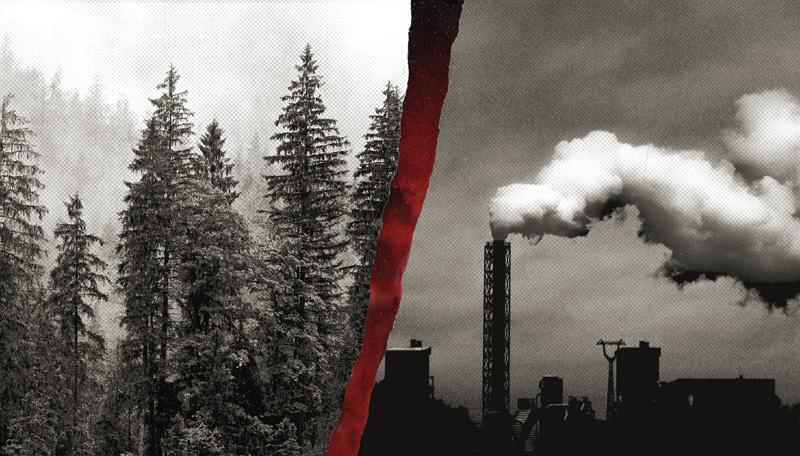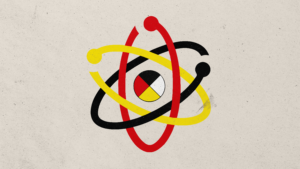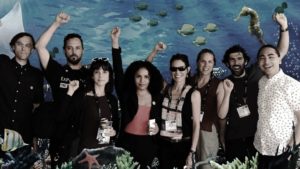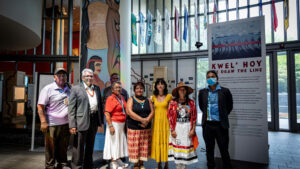As global leaders meet at COP16 in Colombia to evaluate carbon offset policies, a group of scholar-activists from the inaugural cohort of Red Natural History Fellows penned this collective statement.
An Open Letter in Support of a Moratorium on Carbon Offsets
As The Natural History Museum’s first cohort of Red Natural History Fellows, we are a group of scientists and scholars who have come together to leverage natural history’s disciplines, methods, tools, and institutional resources in support of contemporary struggles for climate and environmental justice. As negotiators meet to discuss the future of the climate at the UN Conference on Biodiversity (COP16) in Colombia, we wish to join the Indigenous Environmental Network and allied organizations to call for a moratorium on carbon offsetting policies and other false solutions to climate change.
What are carbon offsets, and why do we need a moratorium on them? In a nutshell, carbon offsets are a mechanism to allow polluting corporations and other institutions to continue polluting the environment while casting themselves as clean since the waste they emit into the atmosphere is supposed to be absorbed into ecosystems located somewhere else on the planet. Programs to facilitate carbon offsetting have been a prominent part of global climate negotiations for decades, with the United Nations’ REDD (or Reducing Emissions from Deforestation in Developing Countries) as a prominent example since its debut at the global climate summit in 2007.
While a handful of Native American tribes in the US are experimenting with conservation strategies intended to garner carbon credits as opportunities for economic growth, the system as a whole is rigged against the efforts of Indigenous people and local communities around the world as they fight to safeguard self-determination over their land and lives. Decades of experience and research have shown that carbon offsetting programs like REDD have not worked. Rich nations provided little funding to incentivize efforts to halt deforestation, with climate-change deniers in countries like the US shooting down efforts to set up the cap-and-trade policies that would have bankrolled REDD. Carbon emissions grow inexorably every year, the world’s forests are being cut down at an accelerating pace, and the sixth mass extinction is intensifying.
Despite this, proponents of carbon offsetting keep trying to keep the idea alive. The latest versions of carbon offsets are currently being negotiated under Article 6 of the Paris Agreement. Instead of cutting emissions at the source, the carbon offsetting policies in Article 6 let polluting governments and corporations cast themselves as environmental saviors. Carbon offsetting thereby facilitates planet-destroying business as usual – with deadly results for vulnerable communities around the world.
There are three key elements of carbon offsetting in the Paris Agreement. Article 6.2 allows countries to trade carbon credits, the idea being that countries that emit little can sell carbon credits to polluting nations. Article 6.4 establishes a central UN mechanism to trade credits from emissions reductions. And Article 6.8 sets up a program for non-market-based programs like taxes designed to cut emissions.
All this may sound grand in theory, but, as the history of REDD suggests, the reality is deadly failure. Article 6.4, for example, attempts to revive the UN’s Clean Development Mechanism. And yet, like other carbon offset market mechanisms, the CDM has structural flaws that mean that a large proportion of the credits being traded within the scheme come from projects that do not really reduce greenhouse gas emission. For instance, 85 percent of the offset projects used by the European Union under the CDM failed to reduce emissions, according to research.
Worse still, these offsetting projects not only don’t work in most cases, but they actively displace Indigenous and local communities around the world. As activists with the Indigenous Environmental Network have noted, the “sustainable development tool” established by Article 6.4 does not include the Rights of Free, Prior, and Informed Consent enshrined by the UN Declaration on the Rights of Indigenous People. The potential for an intensification of the forms of mass displacement of Indigenous peoples linked to REDD is all too real.
In addition, the web-based trading platform established by Article 6.8 is only accessible to countries or private sector-entities that want to bid on areas to be conserved to absorb emissions. As a result, countries can designate particular regions as sites for conservation, and essentially solicit bids from financiers or conservation organizations interested in accumulating carbon credits. But on whose land will these conservation zones be located? What’s to stop the dynamic of neocolonial conservation associated with Protect Areas intensifying around the world under this carbon offsetting and commodification regime?
Carbon offsetting is unleashing a new global land grab. According to a recent study of the registries of carbon offset projects by the nonprofit organization GRAIN, corporations have initiated 279 large-scale tree and crop planting projects for carbon credits just since 2016, covering 9.1 million hectares of land – an area roughly the size of Portugal. This new land grab will only intensify conflicts and pressures over land still simmering after the last land grab sparked in 2007-8 in the wake of global financial and food crises. While displacing poor people, the carbon credits generated by these projects could, according to GRAIN, generate up to $25 billion for wealthy investors.
For these reasons, as Red Natural History Fellows we declare our support for the call for a moratorium on carbon offsets and other fake climate fixes. We unequivocally reject the forms of carbon colonialism and conservation being advanced by such policies, and we call for big polluters and governments to accept responsibility for and clean up the toxic pollution they have spewed into our air, our water, and our lands.
Signed,
Natchee Blu Barnd, Ph.D., Associate Professor, History of Art & Architecture, University of California, Santa Barbara
Kai Bosworth, Assistant Professor, School of World Studies, Virginia Commonwealth University
Andrew Curley (Diné), Associate Professor, School of Geography, Development, and Environment, University of Arizona
Ashley Dawson, Distinguished Professor of Postcolonial Studies, English department, Graduate Center, City University of New York and College of Staten Island
Billy Fleming, Wilks Family Director, McHarg Center, University of Pennsylvania, Stuart Weitzman School of Design
Dina Gilio-Whitaker (Colville Confederated Tribes), Lecturer of American Indian studies, California State University San Marcos
Rosalyn LaPier (Blackfeet/Métis), Ph.D.
The Red Natural History Fellowship is a two-year program that facilitates connecting, cross-pollinating, and catalyzing collaborations between frontline communities and emerging and established scholars, writers, and practitioners who are working to make change in natural history fields—from critical geography to conservation science, museum practice, landscape architecture, and archaeology. The Fellowship is a program of The Natural History Museum, a traveling “museum for the movement.”





